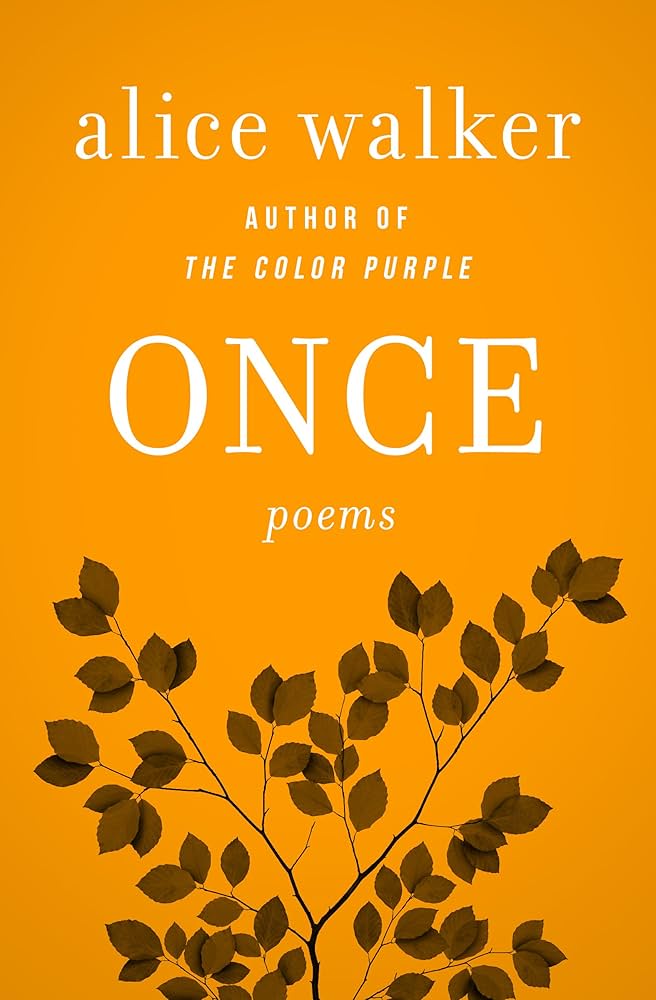Alice Walker Books: A Comprehensive Exploration of Her Literary Works and Cultural Impact

Alice Walker, born in 1944 in rural Georgia, stands as one of the most significant and celebrated authors of the 20th century. Her life, deeply shaped by the realities of segregation and her active participation in the Civil Rights Movement, profoundly informs her writing. Walker’s works consistently explore themes of racism, sexism, spirituality, and the enduring strength of the human spirit, particularly within the context of the African American female experience. While her most famous work, The Color Purple, rightfully commands attention, Alice Walker’s literary contributions extend far beyond this single masterpiece. This exploration delves into the breadth and depth of her literary output, examining her various genres, recurring themes, and the profound cultural impact she has had on literature and society.
Alice Walker’s Novels: A Journey Through Diverse Narratives
Alice Walker’s novels are characterized by their rich tapestry of characters, intricate plots, and profound explorations of the human condition. Her narratives often transcend geographical boundaries, weaving together personal stories with larger social and political contexts.

The Third Life of Grange Copeland (1970)
Walker’s debut novel, The Third Life of Grange Copeland, introduces us to a deeply flawed yet compelling character navigating the complexities of life as a tenant farmer in the American South during the 1930s. Grange Copeland, burdened by internal conflicts and societal pressures, attempts to find happiness and respect in the North, only to return to his family and confront the fractured relationships he left behind. The novel explores themes of family, identity, and the enduring legacy of the past. It lays the groundwork for many of the thematic concerns that would define Walker’s subsequent works, particularly the exploration of intergenerational trauma and the search for self-discovery. The novel’s powerful portrayal of the black male experience, though often overshadowed by later works focusing on women, provides a significant contribution to African American literature.
Meridian (1976)

Meridian, published amidst the height of the Civil Rights Movement, follows Meridian Hill, a young woman seeking a second chance at life. She finds it in a small college outside Atlanta, Georgia, where she becomes involved in the movement. The novel vividly depicts the realities of Jim Crow segregation and the courage required to fight against systemic oppression. Meridian’s personal journey parallels the larger struggle for social justice, showcasing her resilience and determination in the face of adversity. The novel delves into the complexities of activism, the sacrifices involved, and the personal transformation that can result from dedicated engagement with social change. While the struggles of African Americans are front and center, the novel also explores the personal growth and resilience of its female protagonist, laying the groundwork for the female-centric narratives that would come to define Walker’s later works.

The Color Purple (1982)
Arguably Walker’s most celebrated work, The Color Purple transcends its status as a novel to become a powerful cultural touchstone. Told through a series of letters written by Celie, a young Black woman enduring a life of profound abuse and hardship, the novel unveils a harrowing and deeply moving story of resilience and self-discovery. The letters, initially addressed to God and later to her sister Nettie, serve as a powerful means of self-expression and healing. The Color Purple courageously confronts themes of sexual and domestic violence, racism, and the struggles faced by Black women in a patriarchal society. The unwavering bond between Celie and Nettie, along with the transformative influence of Shug Avery, highlights the power of female relationships and the importance of finding one’s own voice. The novel has been praised for its sensitive portrayal of complex characters and its exploration of themes of spiritual growth and redemption, earning the Pulitzer Prize and National Book Award.
The Temple of My Familiar (1989)
The Temple of My Familiar, often considered a sequel to The Color Purple, expands on the novel’s thematic concerns, examining themes of family, spirituality, and social justice within a broader, more multifaceted narrative. The interconnected stories showcase Walker’s unique writing style, weaving together the lives of diverse characters, spanning generations and continents. This complex narrative showcases the author’s exploration of the interconnectedness of people and cultures and her enduring interest in spiritual and personal development. The interconnected narratives of The Temple of My Familiar demonstrate Walker’s skill in weaving multiple stories into a rich and meaningful whole, creating a powerful exploration of the human experience.
Now Is the Time to Open Your Heart (2004)
This novel follows Kate Nelson Talkingtree, a woman in her fifties embarking on a spiritual quest that interweaves personal reflection with journeys across the physical and spiritual landscapes. Kate’s journey represents a metaphor for the inner transformation that can occur during this period of life, marked by both physical changes and the reevaluation of personal relationships. Walker explores themes of self-discovery, spirituality, and the enduring power of love. The narrative also touches upon the exploration of various spiritualities, including Buddhism and Shamanism, reflecting Walker’s own interest in these practices.
Possessing the Secret of Joy (1992)
This novel delves into the devastating effects of female genital mutilation (FGM) on a young African woman, Tashi, whose life is forever altered by this traumatic experience. The exploration of the physical and emotional aftermath of FGM is a critical social commentary on the practice’s profound effects. The novel vividly portrays the challenges faced by those living in a patriarchal society and highlights the importance of overcoming trauma. The narrative interweaves Tashi’s story with that of its other characters, including a central female protagonist, demonstrating the power of community and resilience.
Alice Walker’s Short Stories: Illuminating the Lives of Women
Alice Walker’s short stories offer poignant and insightful glimpses into the lives of women confronting various challenges and seeking connection and self-discovery. These narratives display her gift for character development and her unwavering focus on the complexities of the female experience.
In Love & Trouble: Stories of Black Women (1973)
Her debut short story collection, In Love & Trouble, presents a stark portrayal of the realities faced by black women, tackling difficult themes with sensitivity and honesty. These stories showcase Walker’s talent for weaving profound insight and empathy into her narratives. The collection’s focus on the emotional lives of women, often marginalized by society, is a testament to Walker’s commitment to giving voice to the often unheard.
You Can’t Keep a Good Woman Down (1981)
This collection of short stories further explores the struggles and triumphs of women, using narrative to illuminate the complexities of their lives, ranging from the mundane to the extraordinary. The title itself underscores the resilience and strength of the female characters, who consistently overcome obstacles. The short story format gives Walker the ability to encapsulate various experiences and perspectives within a single collection, enhancing its profound insight into the female experience.
Alice Walker’s Poetry: A Tapestry of Emotion and Social Commentary
Alice Walker’s poetry is just as powerful and impactful as her novels and short stories. It offers a unique lens into her perspectives on life, love, loss, social justice, and the natural world.
Once (1968)
Her first collection of poems, Once, showcases the raw talent and emotional depth she was already capable of expressing at a young age. Her poems range in subject matter from her travels in Africa to her experience as a student, revealing both her keen observation of external landscapes and the profound exploration of her interior world. The collection highlights the beginning of Walker’s literary voice and lays the foundation for her later poetic works.
Revolutionary Petunias and Other Poems (1973)
This collection reflects Walker’s active involvement in the Civil Rights Movement and her passionate engagement with social issues. The poems are sharp, insightful, and visceral, expressing her strong feelings about injustice and her hopes for positive change. The raw emotion and societal context make the collection both emotionally resonant and historically significant.
Horses Make a Landscape Look More Beautiful (1985)
This later collection displays the evolution of Walker’s poetic voice, revealing a wider range of emotions and a more mature expression of her themes. The poems demonstrate Walker’s skill in conveying both intense emotion and serene contemplation. The collection demonstrates Walker’s poetic development, reflecting her artistic growth over time.
Alice Walker’s Essays: A Critical Voice on Social and Political Issues
Alice Walker’s essays offer a critical and insightful perspective on various social and political issues, showcasing her intellectual acuity and unwavering commitment to social justice. These essays demonstrate Walker’s ability to engage with complex themes while maintaining a personal and deeply engaging tone.
In Search of Our Mothers’ Gardens: Womanist Prose (1983)
This collection of essays provides a landmark contribution to feminist literature. The essays explore Walker’s unique perspective of the world through both a personal lens and in a broader societal context. The essays reflect her profound understanding of human nature, the importance of community, and the need to address systemic inequalities.
Living by the Word: Selected Writings, 1973-1987 (1988)
This collection spans a significant period in Walker’s life and career, illustrating her evolving perspectives on topics such as feminism, the Civil Rights Movement, and spirituality. The essays highlight Walker’s consistent and thoughtful exploration of themes, demonstrating her dedication to social commentary. The diverse range of topics showcases the scope of Walker’s interests and her influence as a public intellectual.
The Cultural Impact of Alice Walker’s Work
Alice Walker’s literary contributions have had a profound and lasting impact on society. Her work has challenged societal norms, amplified marginalized voices, and inspired generations of readers and writers.
-
Literary Influence: Walker’s unique writing style, characterized by its blend of lyrical prose, vivid imagery, and intimate storytelling, has significantly influenced subsequent generations of writers, particularly within African American literature. Her fearless exploration of challenging themes has opened doors for other authors to address similar topics with similar honesty.
-
Adaptations: The Color Purple has been adapted into a critically acclaimed film and a successful Broadway musical, solidifying its status as a major cultural artifact and bringing the important themes to broader audiences.
-
Awards and Recognition: Walker has received numerous prestigious awards, including the Pulitzer Prize and National Book Award, for her literary achievements. Her work has earned her a significant place in American literature, inspiring generations of authors.
-
Communities: Walker’s work has fostered a sense of community among readers who connect with the complex and richly human experiences presented in her works. Her work has inspired multiple organizations and movements focused on social justice and the empowerment of women.
In conclusion, Alice Walker’s literary legacy extends far beyond The Color Purple. Her novels, short stories, poems, and essays form a powerful and interconnected body of work that continues to resonate with readers today. Her unflinching exploration of challenging themes, her commitment to social justice, and her profound capacity for empathy have left an indelible mark on literature and society. Her work continues to inspire and challenge us, serving as a testament to the power of literature to both reflect and shape the human experience.